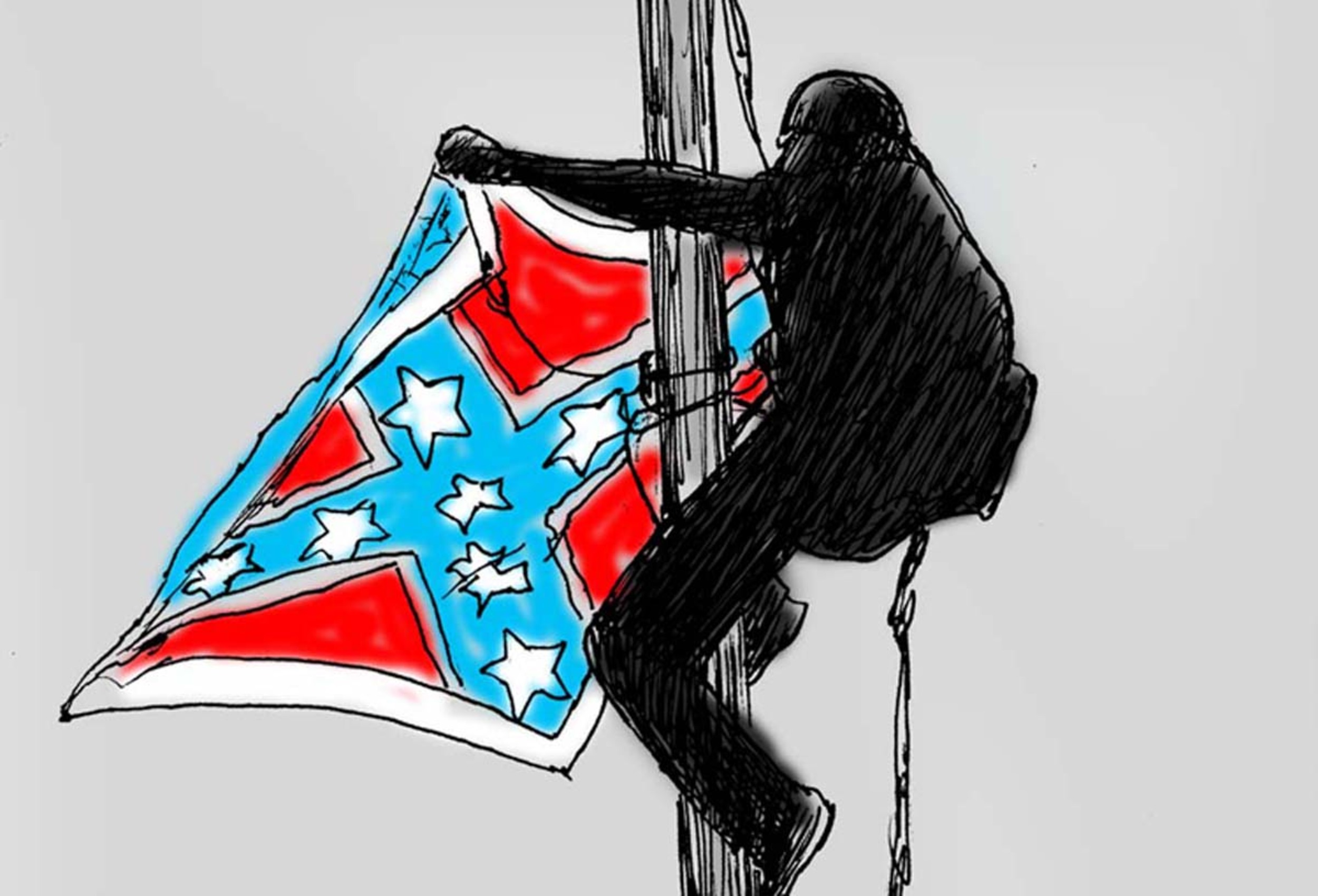As American flags popped up on lawns across the country in celebration of Independence Day, there is generally a shared understanding of what the flag symbolizes in this country. For most Americans, though not all, the symbol of the flag conjures up unspoken ideals of liberty and patriotism. We must acknowledge and accept that all symbols carry powerful messages, whether they are the messages we are trying to convey or not.
The Confederate flag is one of those symbols. It is visible throughout Maine, at businesses, on bumper stickers and on clothing. For some, it has come to represent an historical and geographic identity, albeit one that is rooted in an ideology of hate. For others, it represents racism, violence and the most shameful era of American history.
One thing is for certain, however; it is not a neutral symbol and it cannot be viewed that way. Symbols, like words, hold immense power. It is essential for the person promoting a symbol to take accountability for all of the ways that that symbol is being interpreted and the emotions that it evokes in others.
If you fly the Confederate flag, you are making the choice to promote a symbol of white supremacy and to glorify an historical rebellion in favor of slavery. To deny these associations is to ignore the realities of our current world, as well as our nation’s past.
read more opinions
The Confederate battle flag isn’t a symbol of Southern heritage. It’s a flag of treason.
The time has come to squarely face the history of the Confederacy.
The Confederate flag has long been used by white supremacy groups to promote their ideology and has accompanied atrocious acts of hate. The KKK has flown it at lynchings, and it has been waved by angry mobs opposing school integration. More recently it was seen in a picture of Dylan Roof that came out after he murdered nine black churchgoers in South Carolina and at the white supremacist rally in Charlottesville, Virginia.
In Maine, to fly the Confederate flag under the guise of heritage and history is an ill-informed argument in a state that fought against the Confederacy. Similarly, to relegate issues of racism to the South ignores our own state’s problematic history: our disenfranchisement of African Americans and the racism in our policies, institutions, and culture.
The KKK has a long history in Maine; as recently as 2017, recruitment fliers were sent to houses in Freeport and Augusta. The group’s membership and visibility have gone in waves over the years in Maine, but in 1924 there were a staggering 40,000 members of the KKK in Maine and they were pivotal in electing Gov. Ralph Brewster. There have been rallies as recently as 1988 in South Portland and Rumford.
While it is easy to point to the explicit racism of hate groups like the KKK, the legacy of racism is pervasive in many institutions in our state and can be seen in current statistics. A recent study exposed the appalling fact that Maine has the nation’s largest racial disparity in COVID-19 cases with Black communities contracting the virus at 20 times the rate of white communities in our state. In Maine’s schools, Black students continue to speak out against the racist abuse and harassment that they are subjected to, as well as the inaction of school administrations. In addition, the recent protests against police brutality have highlighted the fact that in cities across the state, Black people are two to four times more likely to be arrested by police than white people.
We must fight for the rights of all Americans, particularly people of color, by demanding more from ourselves and our elected officials to address the racial disparities in our health care, education, economic, and criminal justice system. We must reject the Confederate flag and the racism and violence that is entrenched in its history. We must call for the removal of these symbols in our state if we are going to promote ourselves as a welcoming and inclusive community.
Laura Fralich of New Gloucester is a high school social studies teacher.














You must be logged in to post a comment Login